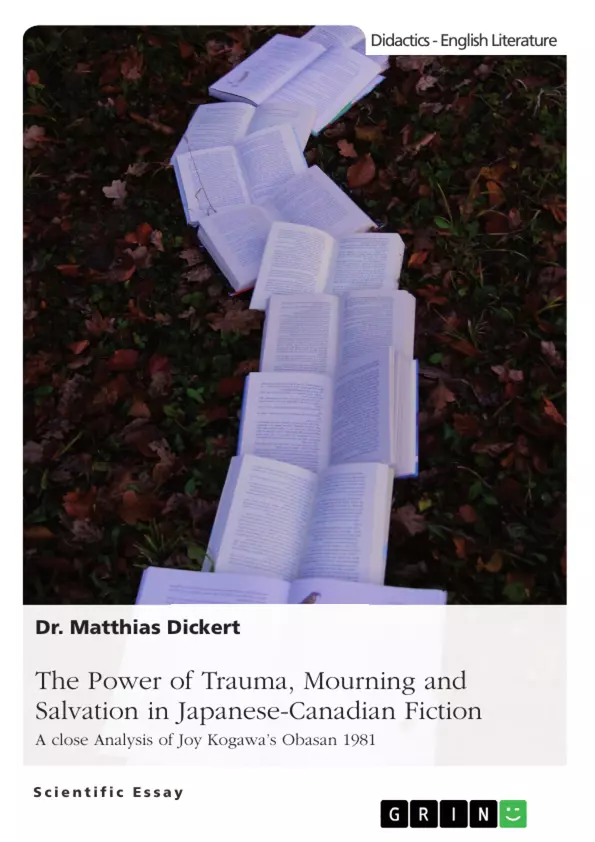Canada for many people is considered to be an ideal country to live in. Unspoiled nature, friendly people, a booming industry, an astonishingly convincing kind of immigration politics and democratic governments are all parts of the so called 'Canadian mosaique' which create the image of a paradise north of the United States of America.
A closer look at Canadian history does, however, present a different and more neglected side. Historical events like the conquest by the French or the British are two examples of how Europeans treated the First Nations for their own sake, a treatment whose negative consequences can still be seen today. Or the sacrifice of nature for economical interests which has amounted in environmental exploitation or disasters like the Exxon Valdez catastrophe in 1989 next to the toxic consequences of tar sand industry in Alberta. The treatment of children and teenagers and their sexual abuse which go by the catchphrase of 'The Duplessis Orphans' already hint at the topic of Joy Kogawa's novel Obasan which was first published in 1981 namely the mistreatment of people of Asian background who did not have public support.
The destiny of Japanese-Canadian citizens which is portrayed here reflects another dark chapter of Canadian history during World War Two, the mistreatment of an ethnic minority after the attacks on the American Fleet in Pearl Harbour on December 7th, 1941.
The novel does not only destroy the constructed image of a friendly encounter between East and West but also shows how we treat human beings of another culture in a seemingly open and democratic society.
Inhaltsverzeichnis (Table of Contents)
- Abstract
- Introductory Notes CanLit
- The History of Japanese Canadians
- Autobiographical Elements in Obasan
- Fiction of Memory – Literary Background and Typical Elements
- Conclusion
Zielsetzung und Themenschwerpunkte (Objectives and Key Themes)
This critical essay aims to examine the power of trauma, mourning, and salvation in Joy Kogawa's novel "Obasan," published in 1981. The essay delves into the historical context of Japanese-Canadian mistreatment during World War II, analyzing how the novel challenges the idealized image of Canada and explores themes of cultural misunderstanding, xenophobia, and racism.
- The historical mistreatment of Japanese Canadians during World War II
- The impact of trauma and loss on individuals and communities
- The role of memory and storytelling in preserving cultural identity and understanding
- The power of language and literature to challenge dominant narratives and promote empathy
- The search for meaning and healing in the face of historical injustice
Zusammenfassung der Kapitel (Chapter Summaries)
The essay begins by providing an overview of the historical context of Japanese-Canadian mistreatment during World War II, highlighting the discriminatory policies and internment camps that impacted the Japanese-Canadian community. The essay then explores the autobiographical elements in "Obasan," connecting the novel to the author's personal experiences and the broader historical narrative. It examines the concept of "fiction of memory," exploring how literature can shape and preserve collective memories. The essay concludes with a discussion of the themes of trauma, mourning, and salvation present in the novel, emphasizing how the characters grapple with the legacies of historical injustice and search for ways to move forward.
Schlüsselwörter (Keywords)
The primary keywords and focus topics of this critical essay are: Japanese-Canadian literature, Joy Kogawa, "Obasan," World War II, internment camps, trauma, mourning, salvation, cultural misunderstanding, xenophobia, racism, memory, storytelling, identity, historical injustice, and literary analysis.
- Quote paper
- Dr. Matthias Dickert (Author), 2021, The Power of Trauma, Mourning and Salvation in Japanese-Canadian Fiction, Munich, GRIN Verlag, https://www.grin.com/document/1021980



